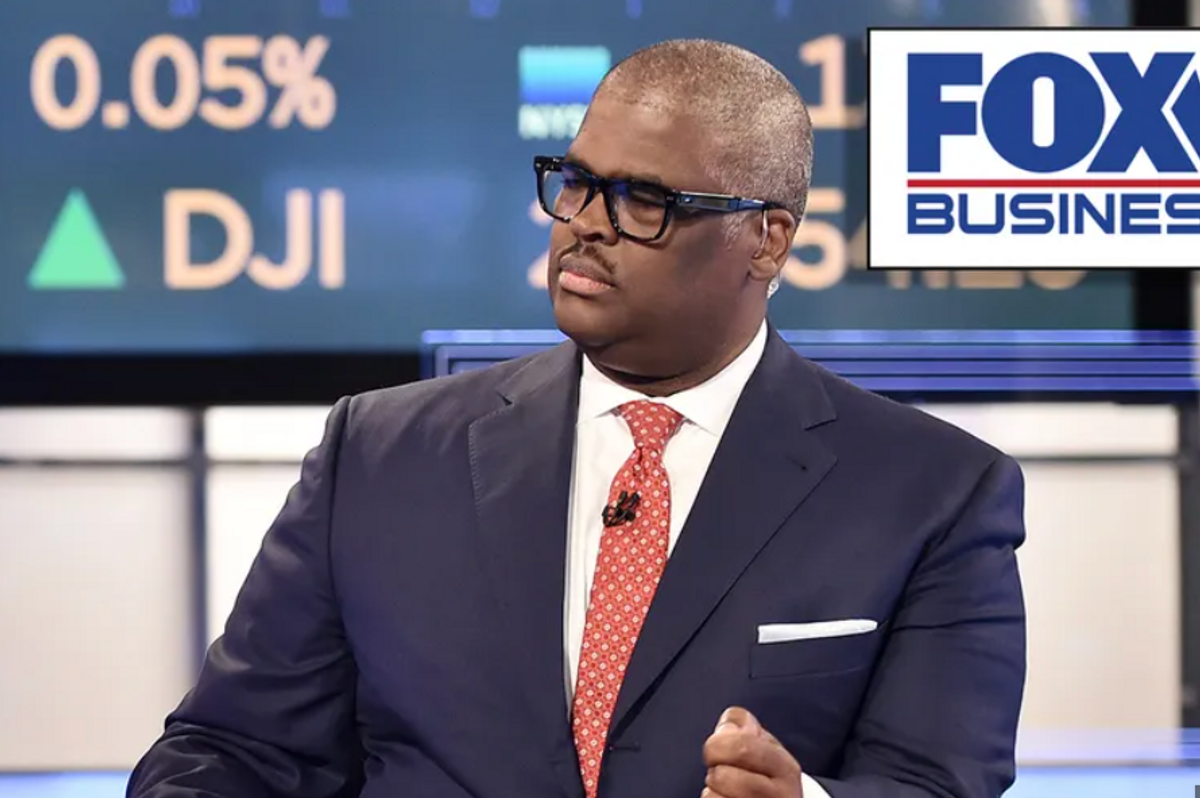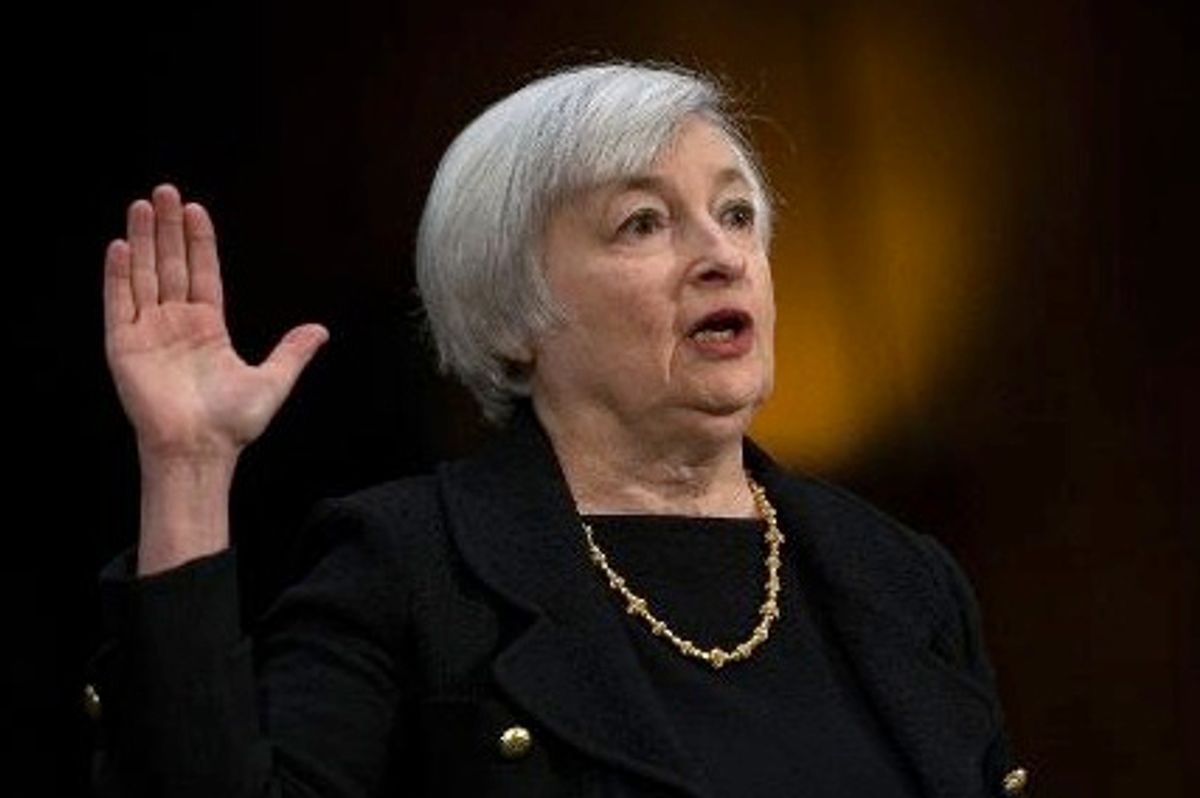Charles Payne
After President Joe Biden called for an end to “trickle-down economics” and promoted a vision of the U.S. in which the wealthy “pay their fair share” of taxes during his March 7 State of the Union address, conservative media figures defended the discredited economic model and decried the president's call to tax the rich.
But experts reacting to Biden's speech noted that the president was correct when he argued that tax cuts for the rich have been a policy failure. Multiple studies examining decades of “trickle-down economics” show that such policies have overwhelmingly benefited the rich.
Biden called for the end of “trickle-down economics” policies that don't help the middle class
During his State of the Union address, Biden laid out a vision of the future in which corporations and wealthy individuals pay “their fair share” of taxes and the U.S. abandons the myth of “trickle-down economics.”
“I want to talk about the future of possibilities that we can build together. A future where the days of trickle-down economics are over, and the wealthy and the biggest corporations no longer get all the tax breaks.”
Biden added: “I grew up in a home where trickle-down economics didn’t put much on my dad’s kitchen table. That’s why I determined to turn things around, so the middle class does well. When they do well, the poor have a way up, and the wealthy still do very well. We all do well.”
Later in the speech, Biden called on Congress to “make the tax code fair” by making “big corporations, the very wealthy, finally begin to pay their fair share.” Biden emphasized that making the wealthy and corporations pay their fair share of taxes is vital to “the question of fundamental fairness for all Americans.”
He called out the Trump administration, which “enacted a $2 trillion tax cut, overwhelmingly benefit[ing] the top 1% — the very wealthy and the biggest corporations — and exploded the federal deficit.”
Biden also called for raising the corporate minimum tax rate “to at least 21%” and for a “minimum tax for billionaires at 25%.”
Economic research backs up Biden's criticism of failed “trickle-down” policies
Experts at the Center on Budget and Policy Priorities validated the president’s critique of tax breaks for the wealthy — especially those created by Trump’s unpopular 2017 legislation, officially known as the Tax Cuts and Jobs Act.
Chuck Marr, CBPP's vice president of federal tax policy, noted: “As President Biden is highlighting, the Trump tax law was skewed to the rich, was extremely expensive, and failed to trickle-down.”
Marr added: “The corporate tax rate cut is Exhibit A: the benefits went to executives, not workers.”
CBPP President Sharon Parrott posted: “The President is right. We need to raise revenues on high income households and corporations to make high-value investments in people, communities, and the economy and to improve our fiscal outlook.”
Center for Economic and Policy Research senior economist Dean Baker noted during the speech that “Republicans are upset that Biden has made taxes mandatory for the rich, not just ordinary people.”
The official CEPR account on X also explained that the wealthiest Americans have already stopped paying taxes into Social Security for this year, because the payroll tax does not apply on income above $168,600.
“Millionaires stopped paying into #SocialSecurity 5 days ago,” the post read. “We’re glad @POTUS called out the rigged tax system, which puts the burden of paying for #SocialSecurity on working-class people. #ScrapTheCap so the rich pay their fair share.”
Melissa Boteach, vice president for income security and child care at the National Women’s Law Center, posted that Biden was “hitting it out of the park on tax fairness. Policies to #taxtherich are fundamental to investing in our families and are HUGELY popular across” political parties.
“Trickle-down economics” has further enriched the wealthy and increased national debt
- A 2012 Congressional Research Service report, which analyzed tax cuts for the rich since 1945, concluded that tax cuts for the wealthy don’t stimulate economic growth. A September 2012 report from the nonpartisan Congressional Research Service determined that “changes over the past 65 years to the top marginal tax rate and the top capital gains tax rate do not appear correlated with economic growth,” adding, “The top tax rates appear to have little or no relation to the size of the economic pie.” The report further concluded that these tax cuts served to exacerbate economic inequality, stating that ”top tax rate reductions appear to be associated with increasing concentrations of income at the top of the income distribution." The CRS report dealt such a heavy blow to trickle-down economic orthodoxy that Senate Republicans fought to suppress the report's findings. The report was eventually revised and re-released months later and featured most of the same conclusions. [Congressional Research Service, 9/14/12, 12/12/12; The New York Times, 11/1/12; NBC News, 12/13/12]
- A 2020 study analyzed the effects of tax cuts for the rich spanning “five decades in 18 wealthy nations” and found that “the rich got richer and there was no meaningful effect on unemployment or economic growth.” Researchers at The London School of Economics and Political Science published a working paper in 2020 analyzing the tax regimes of 18 major developed economies that concluded that “major reforms reducing taxes on the rich lead to higher income inequality as measured by the top 1% share of pre-tax national income.” In a later interview with LSE’s economics blog, one of the researchers who conducted the study added: “Our results align pretty closely with some work from Thomas Piketty, that would suggest that what happens if you cut taxes on the rich is that they then bargain more aggressively for their own compensation at the direct expense of workers lower down the income distribution.” [LSE International Inequalities Institute, December 2020; The London School of Economics, 1/24/23]
- A new study of Trump's 2017 tax cuts for the rich found it produced wage gains far below what was promised and that, instead of paying for itself as Republicans promised, it added “more than $100 billion a year” to the national debt. The New York Times reported that the study “found the cuts delivered wage gains that were ‘an order of magnitude below’ what Trump officials predicted: about $750 per worker per year on average over the long run, compared to promises of $4,000 to $9,000 per worker.” [The New York Times, 3/4/24; National Bureau of Economic Research, March 2024]
- Economists predicted in 2016 that Trump's “nonsense … supply-side, trickle-down economics” would do nothing to help the economy. After Trump unveiled his tax and economic policy proposals in August 2016, economists and tax policy experts from across the political spectrum slammed his plan. Former Labor Secretary Robert Reich dismissed Trump's plan as the “normal nonsense of supply-side, trickle-down economics” characteristic of Republican politicians. Conservative tax analyst Ryan Ellis noted that Trump’s proposed deduction for child-care expenses “would provide no benefit to low income workers and single parents who are unlikely to have any tax liability to begin with.” University of Michigan economist Betsey Stevenson posted that “Trump's economic plan focuses in on those he thinks need the most help: the 540 billionaires in the U.S.” [Media Matters, 8/9/16]
Right-wing media responded by defending failed tax cut policies and rejecting Biden’s take
- Fox & Friends First co-host Todd Piro: “The dirty little secret” is “if you tax corporations more, jobs will go away.” Pirro continued: “At the end of the day, corporations are going to hit that number … whether it comes through increased output or at the sake of you and our jobs.” Pirro also dismissed “the typical tropes of tax the rich, who, in reality, pay most if not close to all of the taxes in this country.” Fox financial contributor Cheryl Casone interjected, “50%.” [Fox News, Fox & Friends First, 3/8/24]
- National Review senior writer Noah Rothman defended “trickle-down economics” from Biden’s critique. National Review posted on X (formerly known as Twitter): “@NoahCRothman: Biden indicts ‘trickle-down economics’ because it did little to help his family when he was growing up. But Biden grew up in the 1950s and early 60s, when the top marginal tax rates approached 50%. Which is to say that Joe Biden did not, in fact, grow up during a period typified by ‘trickle-down economics.’” [Twitter/X, 3/7/24]
- National Review senior writer Dan McLaughlin: “Biden’s rants against ‘trickle down economics’ have not changed a whit since he was singing this tune throughout the Reagan years, railing against growth and prosperity.” [Twitter/X, 3/7/24]
- Fox Business host Charles Payne: “The top 1.0% pay almost 50% of income taxes...what is fair? What is punitive? It’s all deflection from runaway spending.” [Twitter/X, 3/7/24]
- Fox & Friends co-host Brian Kilmeade: “Love the class warfare…let’s simplify the tax code to make Americans hate rich people …what a unifier!!…lets make rich people pay more to taxes so they can stop hiring people and buying buildings, cars, planes and give to charities.” [Twitter/X, 3/7/24]
- Committee to Unleash Prosperity President Phil Kerpen: “The tax share of the rich is by far the highest it has ever been under the Trump tax cuts. Biden's tax hikes will harm the economy and reduce the share paid by the rich. It happens every time.” [Twitter/X, 3/7/24]
Reprinted with permission from Media Matters.


